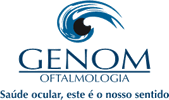
Sessão de Encontro com o Autor – Tema Livre
Código
P113
Área Técnica
Retina
Instituição onde foi realizado o trabalho
- Principal: Universidade Federal de São Paulo (UNIFESP)
Autores
- THIAGO GEORGE CABRAL SILVA (Interesse Comercial: NÃO)
- Luiz H Lima (Interesse Comercial: NÃO)
- Júlia Polido (Interesse Comercial: NÃO)
- Jimmy Duong (Interesse Comercial: NÃO)
- Luiz Guilherme M Mello (Interesse Comercial: NÃO)
- Erika A Okuda (Interesse Comercial: NÃO)
- Akiyoshi Oshima (Interesse Comercial: NÃO)
- Pedro D Serracarbassa (Interesse Comercial: NÃO)
- Caio V Regatieri (Interesse Comercial: NÃO)
- Rubens Belfort Jr (Interesse Comercial: NÃO)
Título
AQUEOUS VASCULAR ENDOTHELIAL GROWTH FACTOR AND CLINICAL OUTCOMES CORRELATION AFTER SINGLE INTRAVITREAL INJECTION OF BEVACIZUMAB IN PATIENTS WITH NEOVASCULAR AGE-RELATED MACULAR DEGENERATION
Objetivo
To evaluate the concentration of vascular endothelial growth factor (VEGF) in aqueous humor after a single intravitreal injection of bevacizumab (IVB) in eyes with neovascular age-related macular degeneration (AMD).
Método
In this prospective interventional case series study, 24 eyes of 24 patients with types 1 and 2 choroidal neovascularization secondary to neovascular AMD were treated with a single intravitreal injection of bevacizumab. Aqueous humor samples were obtained before the intravitreal injection and at one week, one month, and three months follow-up periods. Best-corrected visual acuity (BCVA) and three spectral-domain optical coherence tomography (SD-OCT) parameters (central retinal thickness, macular volume and macular area) were also analyzed and correlated with VEGF expression at the baseline and each follow-up period.
Resultado
All of the ninety-six aqueous humor study taps were well tolerated by the study patients without adverse events. Increased VEGF levels (mean+/-SD = 179.7 +/- 88.3 pg/mL) were observed in the aqueous humor of all study patients before the intravitreal injection of bevacizumab. At all follow-up periods, compared to baseline, levels of VEGF significantly reduced (P < 0.0001), and BCVA significantly improved (P < 0.005). The lowest VEGF expression was observed at 1 week, and the greatest BCVA improvement occurred 1 month after treatment. At 1 month, central retinal thickness (CRT), macular volume (MV), and macular area (MA) significantly reduced compared to baseline (P < 0.0001, P = 0.0005, P = 0.007, P = 0.009, respectively). At 1 week and 3 months, although without statistical significance (P > 0.005), CRT, MV and MA also reduced in comparison to baseline.
Conclusão
Single intravitreal bevacizumab injection in eyes with neovascular AMD resulted in a substantial decrease of aqueous VEGF levels 1 week after treatment with the greatest improvement of clinical outcomes occurring at 1 month follow-up.












